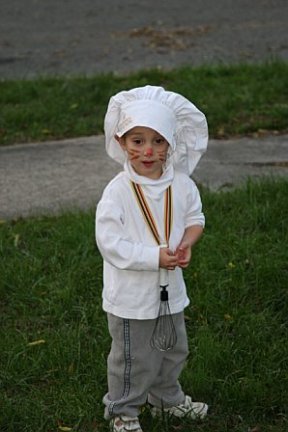The pastor stopped by this week. Yes, in the Year of Our Lord 2013, a full two centuries after Jane Austen wrote Pride and Prejudice, a man of the cloth dropped by for a chat. Afterward, my 10-year-old described the visit as “very Southern.”
With my children and Lulu, the utterly useless Havanese terrier, looking on curiously, the reverend and I sat in the living room and talked about my kids, his grandchildren and the joy of living in a city with extended family. He offered to bless my dog. Then we talked about my restaurant reviews. It was on that topic that he made his only reference to religion.
The context was that he has come across a lot of young people who want to become chefs. No surprise there, since chefs are the new rock stars. But what interested the reverend was how many of these budding culinarians are the children of physicians.
Of course, we are in Nashville, healthcare capital of the world, so you could pick virtually any vocation and chances are many of its practitioners are the spawn of MDs. And there’s no doubt the offspring of affluent docs get exposed to a certain level of culinary sophistication. But the reverend had a few other ideas that blended the secular and soulful in a way that makes this a fascinating topic.
For one thing, he suspects physicians are becoming increasingly frustrated with the healthcare system and consequently nudging their children toward other industries.
For another, he suggested that these parents and children share an instinct for nurturing, which they can exercise in parallel careers of healing and feeding.
Both are very Christian activities, he added.
I know a lot of non-Christian doctors and chefs, and the best homemade chorizo I’ve ever had was made by a Jewish orthopedic surgeon on his day off, but I take the point that a generosity of spirit runs through both the medical and culinary arts.
Throw in the fact that, to be done well, both healthcare and cuisine require a facility and fascination with science — not to mention a lack of squeamishness — and you’ve got a good argument for scalpel and cleaver being two edges of the same sword.
That doesn’t mean there is likely to be such a mass exodus from medicine that we’ll all be going to bistros for healthcare or, conversely, to hospitals for haute cuisine. Medical school enrollments continue to increase, as does enrollment in culinary schools. But imagine if the best points of healthcare work their way into restaurants and the best points of culinary hospitality leech into medicine. Think restaurants serving healthy food and hospitals treating patients as if their success depended on word of mouth, not to mention tips.
If that shift happens, I suspect the medical-culinary families in question will have a hand in it. I’d be interested to hear their thoughts about the overlap of medicine and cuisine, so if you know of any such doctor-chef families, please send them my way.
Meanwhile, let’s hope my own hospitality habits improve. In hindsight, I realize I was so flustered by the unexpected visit from the reverend that I failed to offer him anything. Not even a glass of water. That wasn’t very Southern. I hope that doesn’t mean he won’t visit again. I really enjoyed our spirited, if not overtly spiritual, conversation.
